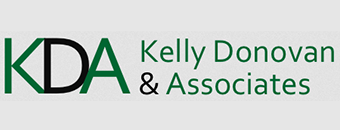Are You Unsure of What’s Next?
Changing careers isn’t as simple as updating your resume to highlight “transferrable skills” and then applying to every job posting that sounds interesting.
By Kelly Donovan, CPRW, NCOPE, CHJMC
Career change is easier said than done.
I’ve helped many clients who changed careers, and I’ve also had clients who attempted a career change, but stumbled—so I know first-hand what works and what doesn’t work when it comes to career change.
The #1 killer that will keep you in limbo indefinitely is a lack of clarity on the ideal type of position you’re going to target. You absolutely need to do the soul-searching and research necessary to settle on a specific career path.
That doesn’t mean you can never change your mind, but as part of the process you would be doing research and speaking with people who are already in the field you’re considering–and that will help you be more certain that the career is right for you.
(A related issue is the importance of having clarity on the types of roles you want, even if you’re not changing careers.)
It takes a careful, thoughtful, and methodical process to execute a career change effectively.
Determine what career you want to pursue.
Otherwise, if you try going in too many different directions at once, it’s unlikely that you’ll get very far. Think of it like hiking; is it possible to hike to the summit of five different peaks at the same time? Of course not—you can’t be on five trails at the same time!
Identify what the requirements are for your chosen career.
Will it require additional education, training, or certifications? Is it very important to have experience in the field to get a job, meaning that you would need to intern, freelance, or volunteer first?
Find a mentor in the new field.
I can’t stress this enough. Research is great, and career coaches are helpful, but receiving guidance from someone who actually works in the field that you want to be in is very valuable. They can provide you insight that could save you time and money as you transition.
Plan to network, network, network.
If you lack experience and qualifications in a field, applying for advertised job postings is the worst possible way to look for a position in that field. If you’re not familiar with the nuances of networking, this is something you can work on in the job search coaching process.
Are you receiving outplacement services?
If your former employer will be paying for your career transition assistance (known as “outplacement assistance”), then we can include career counseling in your outplacement package to help you through the “career exploration” process.
If you schedule a free consultation, I’m happy to discuss this in more detail.
Are you wanting to revamp your resume and LinkedIn profile?
If you’re interested in changing careers, you would need to identify your career of choice before we begin the process of developing your resume and LinkedIn profile. That’s because your resume and LinkedIn profile need to be tailored and targeted toward your target job.
When decision makers are reviewing your resume, they are looking for a round peg for a round hole–meaning someone who’s a perfect fit for the job in question. If your resume is too general and broad, you’ll seem like a square peg.
I know it’s hard to figure this out on your own. The good news is that you can work with a career counselor on a process of “career exploration” if you need help.
Investing in professional help
If you’re investing in career services on your own (your employer isn’t paying), you’ll need to factor in the cost of career exploration counseling along with other services you’d like to receive. Don’t try to save money by skipping the critical step of getting clear on your career path!
- Career exploration can range from ~$800 to $1600+ depending on the career coach/counselor and the scope of your package or number of sessions.
- Your resume and LinkedIn package will be an additional investment on top of that (my Services page gives an idea of pricing).
If you don’t think you can afford professional help with everything, I would suggest one of these options:
- Get professional help with career exploration and then DIY your resume and LinkedIn profile.
- Take a DIY approach to career exploration and then invest in professional help for your resume and LinkedIn profile, but only AFTER you’re crystal-clear on your job target.
- Get professional help with career exploration, and then wait until you can save the funds for the resume and LinkedIn profile.
- Take a DIY approach to all of this (clearly, this is the most affordable option, but probably the most difficult and least effective).
Do you need free or low-cost career change resources?
Working with private career counselors isn’t right for everyone. Here are some free and low-cost resources that you might find helpful:
- The book “From Paycheck to Purpose: The Clear Path to Doing Work You Love” by Ken Coleman
- The “What Color is Your Parachute?” workbook (the book is famous; the workbook is especially helpful)
- Government offices that offer free career counseling (see www.careeronestop.org)

